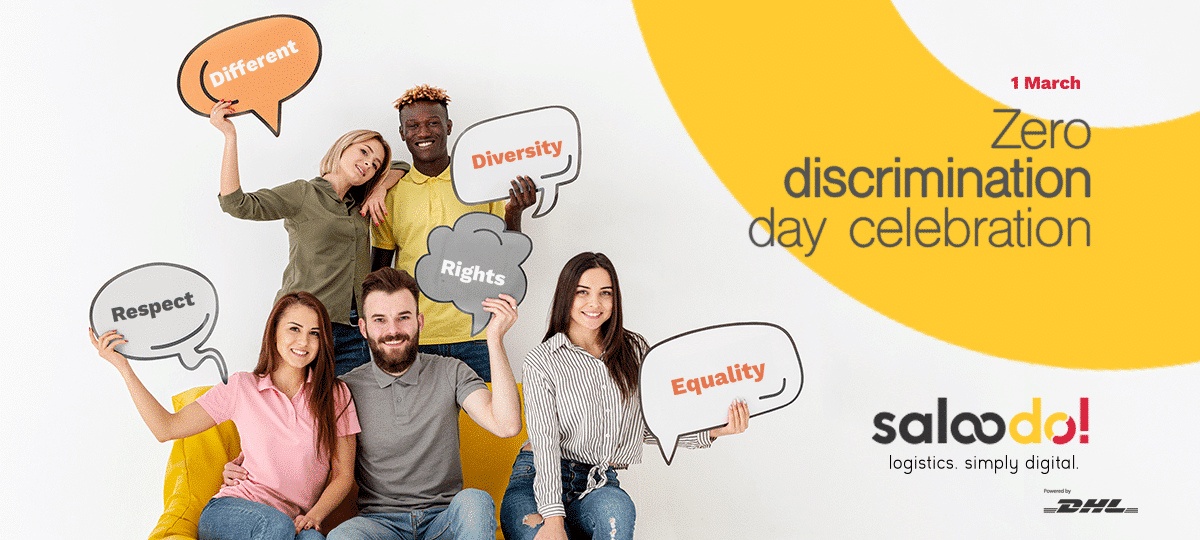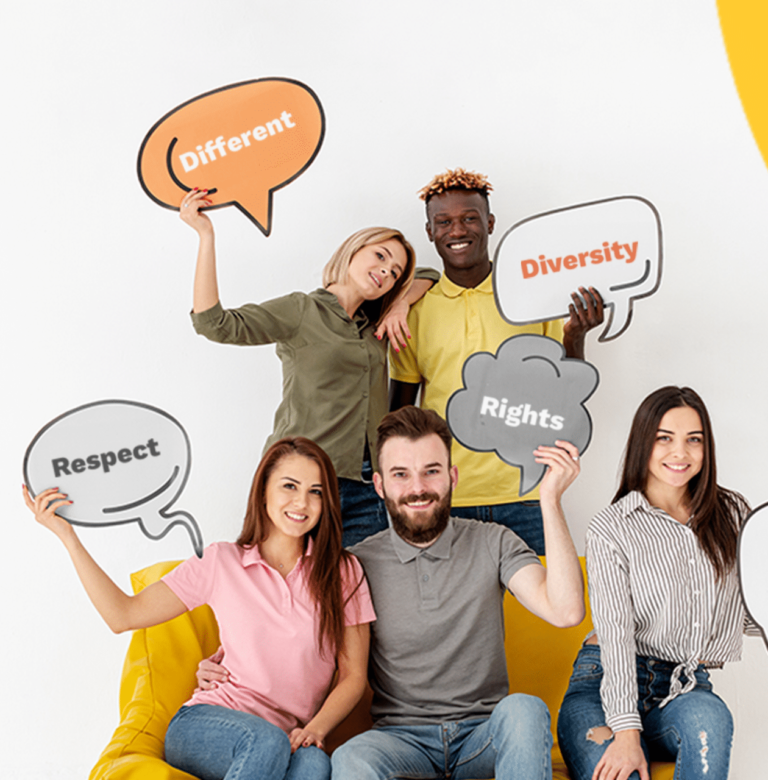„Diversity and inclusion are strong pillars of our company culture. Not only our digital platform is setting the world in motion, it’s every single team member with their uniqueness. I am proud of our global and multicultural following.“, states Dr. Antje Huber, our CEO at Saloodo!
Powered by DHL we commonly agreed on a so called Code of Conduct, that reflects our corporate values, like respect and tolerance, and gives pillars for a day-to-day working life. It is an indispensable part of our DPDHLs corporate identity, reflects corporate values and pays into our mutual customer promise.
To become a part of our amazing team, we invite you to check our open positions.
The significance of this day
The United Nations Progress Programme found out, that worldwide more than 70% of world population are suffering from discrimination, where social and economical disadvantages are the consequences. Covid19 even amplifies this number currently. On 1 March, Zero Discrimination Day, we honour everyone’s right to live a happy, successful and fearless life with dignity. During Zero Discrimination Day, people are encouraged to learn about and advocate for a movement for inclusiveness, compassion, peace, and a better world. The goal of Zero Discrimination Day is to unite people all across the world in the fight against discrimination.
The history of Zero Discrimination Day
UNAIDS’s Michel Sidibé announced on 1St March 2014 the importance of striving and ending prejudice towards humans dealing with illnesses like HIV. Since then it is celebrated yearly to promote equality not only before the law but in common practice worldwide. In February 2017 asked everyone to “make some noise around zero discrimination, to speak up and prevent discrimination from standing in the way of achieving ambitions, goals and dreams.“
Zero Discrimination Day Theme of 2022
Zero Discrimination Day theme this year will be “Remove laws that harm, create laws that empower”. Even in 2022 women and children are still subject to discriminatory laws in many countries. When it comes to marriage and voting, for example, there exist laws that do not grant women the same privileges as males. In the same way that privileges granted to the heterosexual community are denied to the LGBT community. Human rights and fundamental freedoms are not protected by these laws, which are discriminatory.










